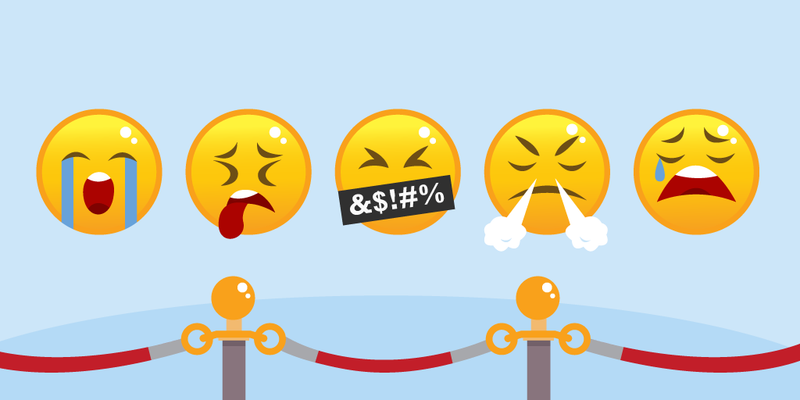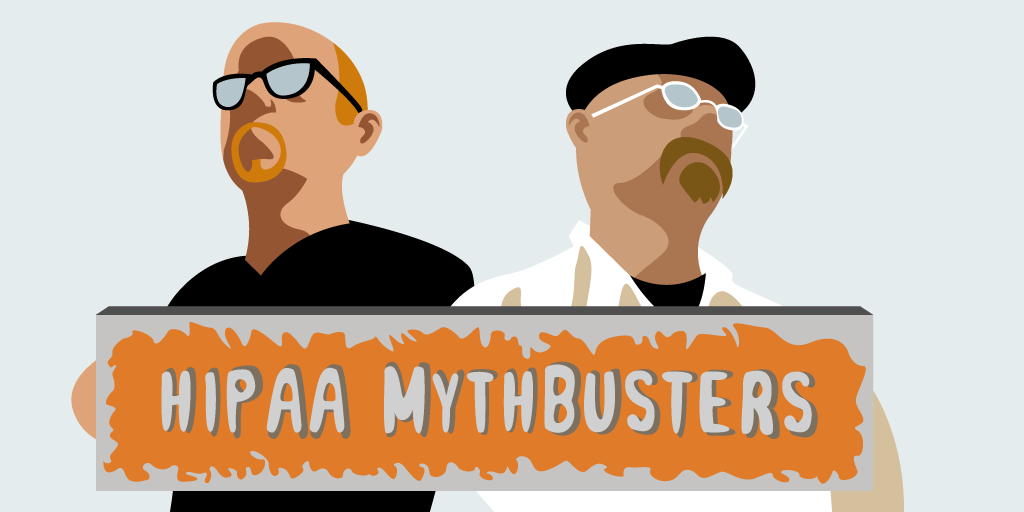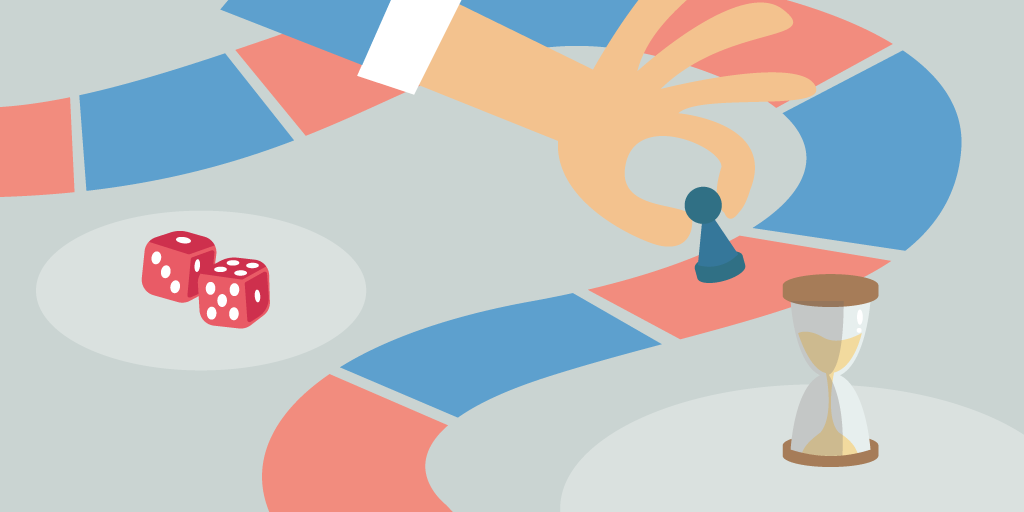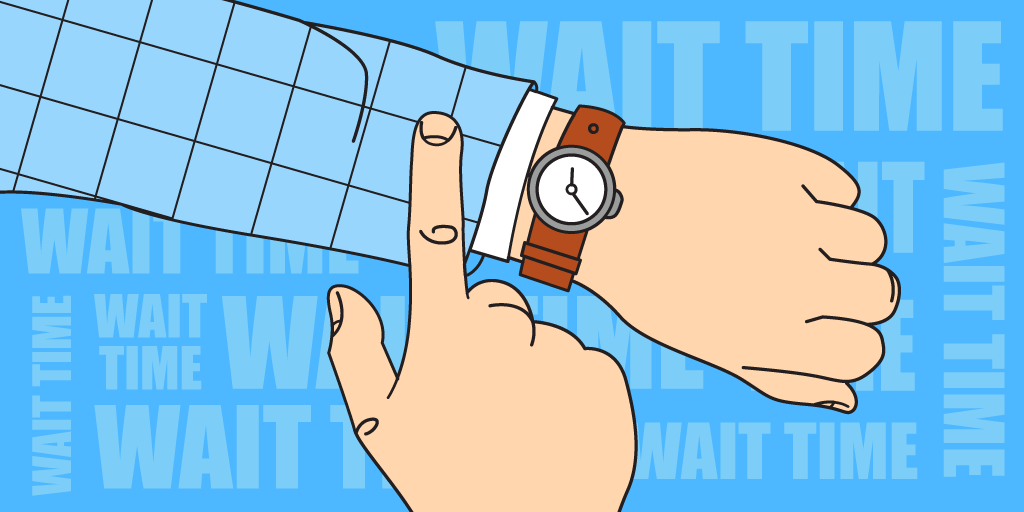Do you like waiting in line? No need to answer, that was a rhetorical question.
Just imagining ourselves crammed between two people is enough to inspire annoyance, or that potent emotion we call hate.
As the eminent professor of queues at MIT, Richard Larson, puts it, “Often the psychology of queueing is more important than the statistics of the wait itself.”
It doesn’t matter if analytic reports show that Walmart has the fastest queues of any business in the world (they don’t). What does matter is the subjective experience of what it’s like to wait in line.
That means we have to dive into our minds to understand the psychology of waiting.
Hating the Wait

We only remember the beginning and end of any experience. It’s called the serial-position effect and helps explain how we remember events.
The middle tends to be forgotten. Which is why the most memorable stories and events have strong beginnings and endings.
How does this relate to the psychology of queueing?
Well, it shows why people overestimate how long they had to wait in line by about 36%. You only remember when you first got in line and when you checked out.
An example of the psychology of waiting in line might help.
If the people ahead of you in line checkout fast—and as a consequence, you get out of the store in a timely manner—you’re likely to report a positive experience. Because the entire shopping journey now feels quick and easy in hindsight.
But the contrary also holds. If the line slows to a crawl just before you check out you’re likely to judge your entire shopping experience negatively.
The customer’s entire perception of a brand or business can be made or broken by the psychology of queueing.
Hating the Unknown

Waiting in line puts us in direct contact with the unknown: we don’t know when we’ll check out. And the psychology of waiting reveals that people hate the unknown.
Because the unknown breeds anxiety, so that anxiety quickly festers into annoyance—and then finally hatred of the line.
We don’t just feel uncomfortable about unknown when it comes to lines. Researchers Amos Tversky and Eldar Shafir showed that some people will even pay money to remove the unknown — to gain some certainty.
Poorly designed queues (those without queue management systems such as Qminder) don’t give customers any information. Customers have no idea how long the wait we’ll be.
In his paper The Psychology of Waiting Lines David H. Maister writes:
“Waiting in ignorance creates a feeling of powerlessness, which frequently results in visible irritation and rudeness on the part of customers.”
The unknown is further catalyzed by the injustices of poor queue design.
Hating Injustice
Perhaps the most egregious part of waiting in line is seeing other customers check out before you.
You jump lines, believing that another lane is checking out faster. Only to find out that you’ve chosen poorly and the line you left is now moving faster. No wonder nearly half of people report feeling very irritated by waiting in line.
Waiting in line can be unfair. And the psychology of waiting shows that people value fairness.
In a sense, fairness is hardwired into our psyche. A sense of fairness even shows up in experiments with capuchin monkeys.
Understanding this aspect of the psychology of queuing should motivate businesses to revamp their queues to make queues feel shorter and be fairer.
Hating Losing Time

The day-to-day grind of living is fast-paced in the digital age. We bounce from one goal to the next with hardly a chance to breathe.
As the psychology of waiting in line as shown, queues disrupts the rhythm of our day. And when we feel like we’ve been waiting all day it becomes unbearable.
The philosopher William James wrote, “...a day full of waiting, of unsatisfied desire for change, will seem a small eternity.”
You rush to the bank on your lunch break, because there is no other time during the day to get things done. And then you’re at the mercy of other people waiting just as impatiently, to get back to work on time.
We don’t need a fully developed psychology of queueing (not that we shouldn't have one) to understand impatience. (We all tap our feet and stare our smartphones in impatience.)
The trick is to learn how to live with the psychology of queuing and master our impatience.
Learning to Love the Line

We’ve talked quite a bit about hating the line but we don’t want the takeaway from this article to reinforce that negative experience.
The psychology of queuing doesn’t necessarily mean you’re going to dislike the wait. Some customers do enjoy the line, and you may be one of them!
After all, a line is a self-contained goal. With each step you move closer to accomplishing your goal of checking out.
There’s nothing you have to do to get out faster but wait. And this opens up the opportunity to distract yourself with your phone and hone in on your own thoughts—something many of us feel we don’t have the time to do anymore.
Mental Preparation
There are steps one can take to prepare their minds for the psychology of waiting. The first of which is understanding how waiting in line affects our perceptions as outlined in this article.
The next is to understand the inevitability of the wait and to make the most of the time spent waiting. Rather than using that time to feed your annoyance.
A waiting line doesn’t have to be a waste of time.
Invest in psychological insurance. Instead of browsing Instagram bring a book! Author Stephen King even brings a book to sporting events so that he can occupy his mind during downtime.
It’s amazing what you can accomplish in free moments.
Distract yourself by doing something for yourself. Waiting in line is also an opportunity to visit your mental checklist for the day, or to take a moment to introspect.
Waiting in line can stretch the passage of time towards infinity, so make the most of it!
Waiting in line doesn’t have to be an aggravating experience. But unfortunately, all too often it is. However, businesses can take steps to reduce customer’s agitation.
One of the biggest leaps forward is a queue management system such as Qminder. Qminder provides businesses the tools they need to transform their line into a painless process.
You can discover how Qminder can help your business by signing up for a free two-week trial. No credit card required!






